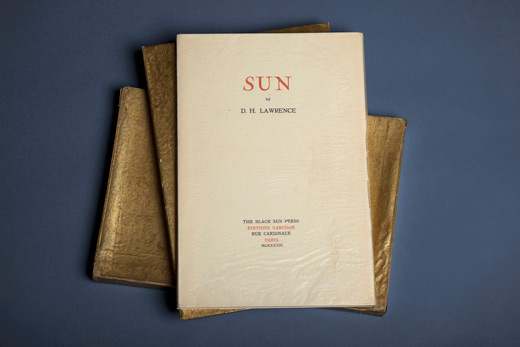I think what can be assumed is that both men were probably too headstrong and too proud to meet each other, knowing the other person was their greatest rival. Lawrence and Joyce simply mixed in different circles. Joyce had a lot of American support, from the likes of Fitzgerald, Hemngway, Eliot and Pound, not to mention his wealthy backer, Harriet Shaw. Lawrence, on the other hand, with the exception of Mabel Dodge and Amy Lowell, favoured the company of English people like Huxley, Murry and Katherine Mansfield, E M Forster, Richard Aldington and for a limited time Bertrand Russell. Lawrence never liked big cities, so didn’t frequent Paris very often. Joyce spent most of his time there. Moreover, Lawrence had reason to be suspicious of Joyce. He thought he was writing the modern novel with his limited experimentation with form in works like ‘Kangaroo’, but must have been dismayed when he first saw ‘Ulysses’ when it came on the market at about the same time. With Joyce, Modernism took on a whole new meaning.
So Lawrence and Joyce would spend their time attacking each other in letters to friends, even though they never met, and even though they probably didn’t know each other’s work as well as they should. Their temperaments certainly did not suit. Together, like two other artistic geniuses in Van Gogh and Gauguin, they would have had electric and probably destructive arguments.
The barbs include the following- of ‘Ulysses’, Lawrence would comment ‘Ulysses is much more disgusting than Casanova’; of ‘Work in Progress’, ‘too terribly would-be and done- on- purpose, utterly without spontaneity or real life’; and on hearing Joyce reading from ‘Ulysses’ on the gramophone, ‘…a Jesuit preacher who likes the cross upside down.’
Joyce, on his part, would be as equally forthcoming. At the suggestion of a friend that Lawrence should be asked to contribute to a journal they both knew, ‘That man really writes very badly’; another time his English is ‘sloppy’, and that Lawrence’s sex (presumably ‘Lady Chatterley’) was ‘imitation pornography.’
Whilst it is clear to me that Joyce and Lawrence would never have hit it off, I can’t help thinking that Frieda Lawrence and Nora Barnacle would have been a great match. Both were unique and radical thinkers in their day, Nora escaping the confines of a Catholic society and and life in a Dublin convent by eloping with Joyce to Europe, and Frieda, much more experienced, but choosing life with a poor, nomadic author over the stability of a middle-class life with three young loving children and a highly respected husband. They could have also, at the very least, compared notes about life with their respective eccentric genius writers as husbands.


No comments:
Post a Comment